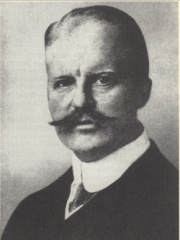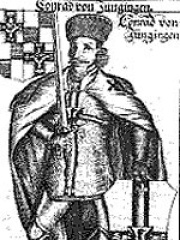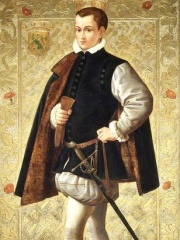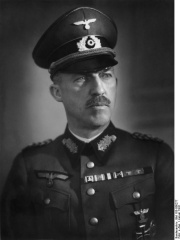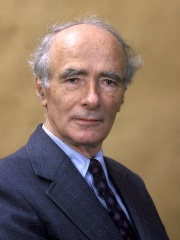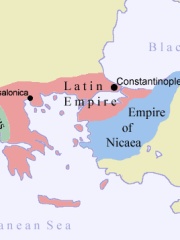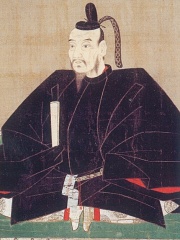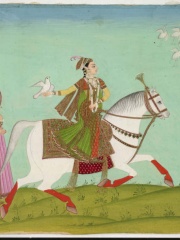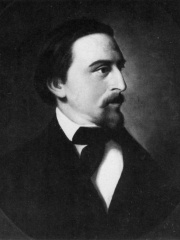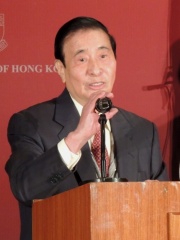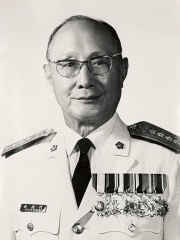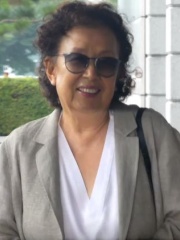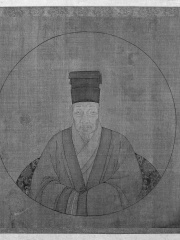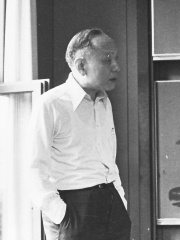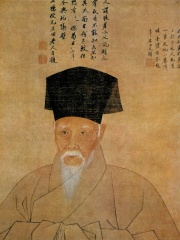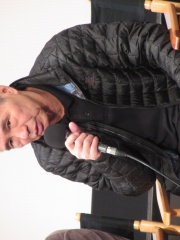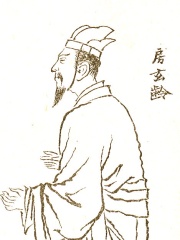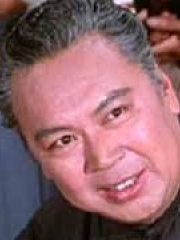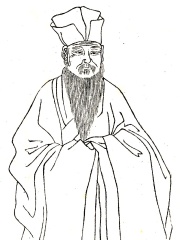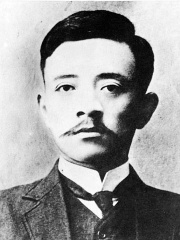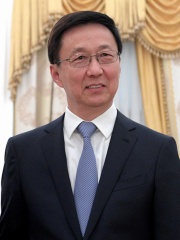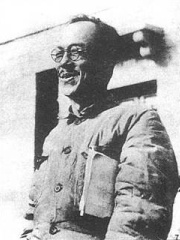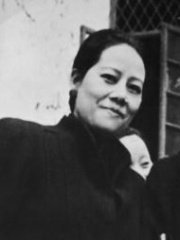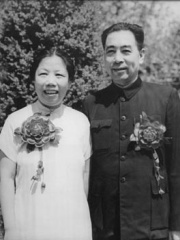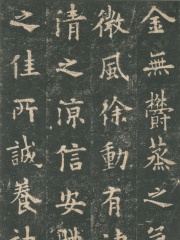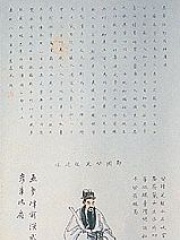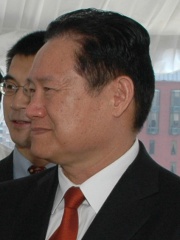POLITICIAN
Zhong Yao
151 - Today
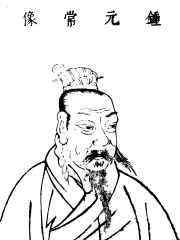
 Zhong Yao
Zhong Yao
Zhong Yao (鍾繇, 151 – April or May 230), also referred to as Zhong You, courtesy name Yuanchang (元常), was a Chinese calligrapher and politician who lived during the late Eastern Han dynasty and Three Kingdoms period of China. He served in the state of Cao Wei during the Three Kingdoms period. His calligraphy was highly regarded as he was known as one of the Four Worthies of Calligraphy (書中四賢) in the history of Chinese calligraphy. Read more on Wikipedia
His biography is available in 17 different languages on Wikipedia. Zhong Yao is the 8,092nd most popular politician (down from 7,635th in 2024), the 543rd most popular biography from China (up from 562nd in 2019) and the 306th most popular Chinese Politician.
Memorability Metrics
Page views of Zhong Yao by language
Among POLITICIANS
Among politicians, Zhong Yao ranks 8,092 out of 19,576. Before him are Arthur Zimmermann, Herbert I, Count of Vermandois, Konrad von Jungingen, Lord Guildford Dudley, Marcianus, and Paul von Hase. After him are Trygve Bratteli, Andronikos II of Trebizond, Chōsokabe Motochika, Chand Bibi, Muhammad III of Córdoba, and Wilhelm Marr.
Most Popular Politicians in Wikipedia
Go to all RankingsArthur Zimmermann
1864 - 1940
HPI: 63.10
Rank: 8,089
Herbert I, Count of Vermandois
850 - 907
HPI: 63.10
Rank: 8,090
Konrad von Jungingen
1355 - 1407
HPI: 63.10
Rank: 8,091
Lord Guildford Dudley
1536 - 1553
HPI: 63.10
Rank: 8,092
Marcianus
500 - 484
HPI: 63.09
Rank: 8,093
Paul von Hase
1885 - 1944
HPI: 63.09
Rank: 8,094
Zhong Yao
151 - Present
HPI: 63.09
Rank: 8,095
Trygve Bratteli
1910 - 1984
HPI: 63.09
Rank: 8,096
Andronikos II of Trebizond
1240 - 1266
HPI: 63.09
Rank: 8,097
Chōsokabe Motochika
1539 - 1599
HPI: 63.09
Rank: 8,098
Chand Bibi
1550 - 1599
HPI: 63.09
Rank: 8,099
Muhammad III of Córdoba
976 - 1025
HPI: 63.09
Rank: 8,100
Wilhelm Marr
1819 - 1904
HPI: 63.09
Rank: 8,101
Contemporaries
Among people born in 151, Zhong Yao ranks 1.
Others Born in 151
Go to all RankingsIn China
Among people born in China, Zhong Yao ranks 543 out of 1,610. Before him are Lee Shau-kee (1929), He Yingqin (1890), Emperor Shizong of Jin (1123), Na Moon-hee (1941), Wen Zhengming (1470), and Shiing-Shen Chern (1911). After him are Shen Zhou (1427), Zhu Shijie (1249), Hou Hsiao-hsien (1947), Fang Xuanling (578), Lo Wei (1918), and Cheng Yi (1033).
Others born in China
Go to all RankingsLee Shau-kee
BUSINESSPERSON
1929 - 2025
HPI: 63.16
Rank: 537
He Yingqin
POLITICIAN
1890 - 1987
HPI: 63.14
Rank: 538
Emperor Shizong of Jin
POLITICIAN
1123 - 1189
HPI: 63.13
Rank: 539
Na Moon-hee
ACTOR
1941 - Present
HPI: 63.12
Rank: 540
Wen Zhengming
PAINTER
1470 - 1559
HPI: 63.11
Rank: 541
Shiing-Shen Chern
MATHEMATICIAN
1911 - 2004
HPI: 63.11
Rank: 542
Zhong Yao
POLITICIAN
151 - Present
HPI: 63.09
Rank: 543
Shen Zhou
PAINTER
1427 - 1509
HPI: 63.08
Rank: 544
Zhu Shijie
MATHEMATICIAN
1249 - 1314
HPI: 63.07
Rank: 545
Hou Hsiao-hsien
ACTOR
1947 - Present
HPI: 63.04
Rank: 546
Fang Xuanling
POLITICIAN
578 - 648
HPI: 63.03
Rank: 547
Lo Wei
FILM DIRECTOR
1918 - 1996
HPI: 63.00
Rank: 548
Cheng Yi
PHILOSOPHER
1033 - 1107
HPI: 62.98
Rank: 549
Among POLITICIANS In China
Among politicians born in China, Zhong Yao ranks 306. Before him are Song Jiaoren (1882), Han Zheng (1954), Kang Sheng (1898), Soong Ai-ling (1888), He Yingqin (1890), and Emperor Shizong of Jin (1123). After him are Fang Xuanling (578), Deng Yingchao (1904), Ouyang Xun (557), Zheng Zhilong (1604), Octar (350), and Zhou Yongkang (1942).
Song Jiaoren
1882 - 1913
HPI: 63.26
Rank: 300
Han Zheng
1954 - Present
HPI: 63.25
Rank: 301
Kang Sheng
1898 - 1975
HPI: 63.23
Rank: 302
Soong Ai-ling
1888 - 1973
HPI: 63.20
Rank: 303
He Yingqin
1890 - 1987
HPI: 63.14
Rank: 304
Emperor Shizong of Jin
1123 - 1189
HPI: 63.13
Rank: 305
Zhong Yao
151 - Present
HPI: 63.09
Rank: 306
Fang Xuanling
578 - 648
HPI: 63.03
Rank: 307
Deng Yingchao
1904 - 1992
HPI: 62.97
Rank: 308
Ouyang Xun
557 - 641
HPI: 62.96
Rank: 309
Zheng Zhilong
1604 - 1661
HPI: 62.94
Rank: 310
Octar
350 - 430
HPI: 62.89
Rank: 311
Zhou Yongkang
1942 - Present
HPI: 62.87
Rank: 312
